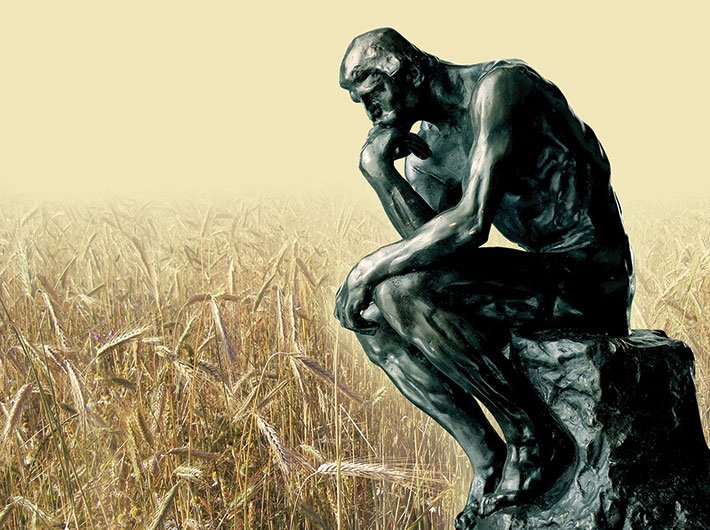The top one percent farmers earn several times more than an average salaried taxpayer
Before Narendra Modi replied with the now-famous greeting of “Puducherry ko Vanakkam”, a BJP worker was telling him in a party-organised video conference that the government was “only busy collecting tax in all manner and in all ways,”, creating much discomfort to the middle class. But a single-minded focus on taxes may not be a bad idea after all. The government has been relentlessly at work to increase its revenues, so that it has more money on hand to spend – be it on infrastructure or on welfare spending. That is why the two biggest, boldest decisions on the economic front – demonetisation and GST – both relate to taxes. Here is a third bold idea: tax agriculture.
Middle-class people, mostly salaried folks, have long felt that they have been bearing too great a burden of earning for the nation-building. A small upper class always finds ways to dodge taxes, and the larger lower middle class is rightly out of the tax net. Thus, direct taxes are paid by about six crore (or less: not all returns filed result in actual taxes). You could be earning barely Rs 3 lakh, and yet you have to cough up taxes. On top of that, the middle class, as consumers, also ends up paying up a large share of indirect taxes, be it various kinds of cess or the passed-on duties.
Think
If India wants raise the tax-GDP ratio from about 16 percent to 22 percent, as NITI Aayog envisions, new tax options will have to be explored
. . .
The top one percent farmers earn several times more than an average salaried taxpayer
On the other hand, a big class of people make money tax-free. Though agriculture does attract a variety of taxes and the states are free to impose some more, the income from it is free at the central level. Since a majority of the farmers are poor and depend on the vagaries of nature to make a living, the idea of taxing agriculture income seems cruel if not outright inhuman. However, like the personal income tax for the salaried class, a high limit can be proposed so that most farmers continue to be unaffected.
A majority of farmers in India have very small landholding, and those with more than four hectares of land form barely four percent of the total farming families – but they make 20 percent of the total agriculture income. When an income-tax payer with an annual income of Rs 3 lakh goes to work in a city bus, there are farmers who run a business enterprise equivalent of a small firm. Why shouldn’t they pay for the nation-building? More so, when the government has promised to double the farmers’ income and theirs too will double.
In November, NITI Aayog published ‘Strategies for a new India’ with 41 recommendations. A crucial one is to raise the tax-to-GDP ratio. It notes, “India’s tax-GDP ratio of around 17 percent is half the average of OECD countries (35 percent) and is low even when compared to other emerging economies like Brazil (34 percent), South Africa (27 percent) and China (22 percent). To enhance public investment, India should aim to increase its tax-GDP ratio to at least 22 percent of GDP by 2022-23.” The governments so far have explored all avenues to extract taxes, and one of the few left on the menu is agriculture.
With right conditions and restrictions, taxing agricultural income can be a the ultimate bold move in the economic arena. It will be a great leveller too.
Reality Check
These are the days of the loan waiver: manifestoes promise it, elections are won or lost on it, and parties are in competition to prove that one has waived more loans than the other has. Debating whether loan waivers are good for the economy or not would itself be a bold move. Against this background, can anyone imagine a party promising tax on agricultural income?
ashishm@governancenow.com
(The article appears in January 15, 2019 edition)

